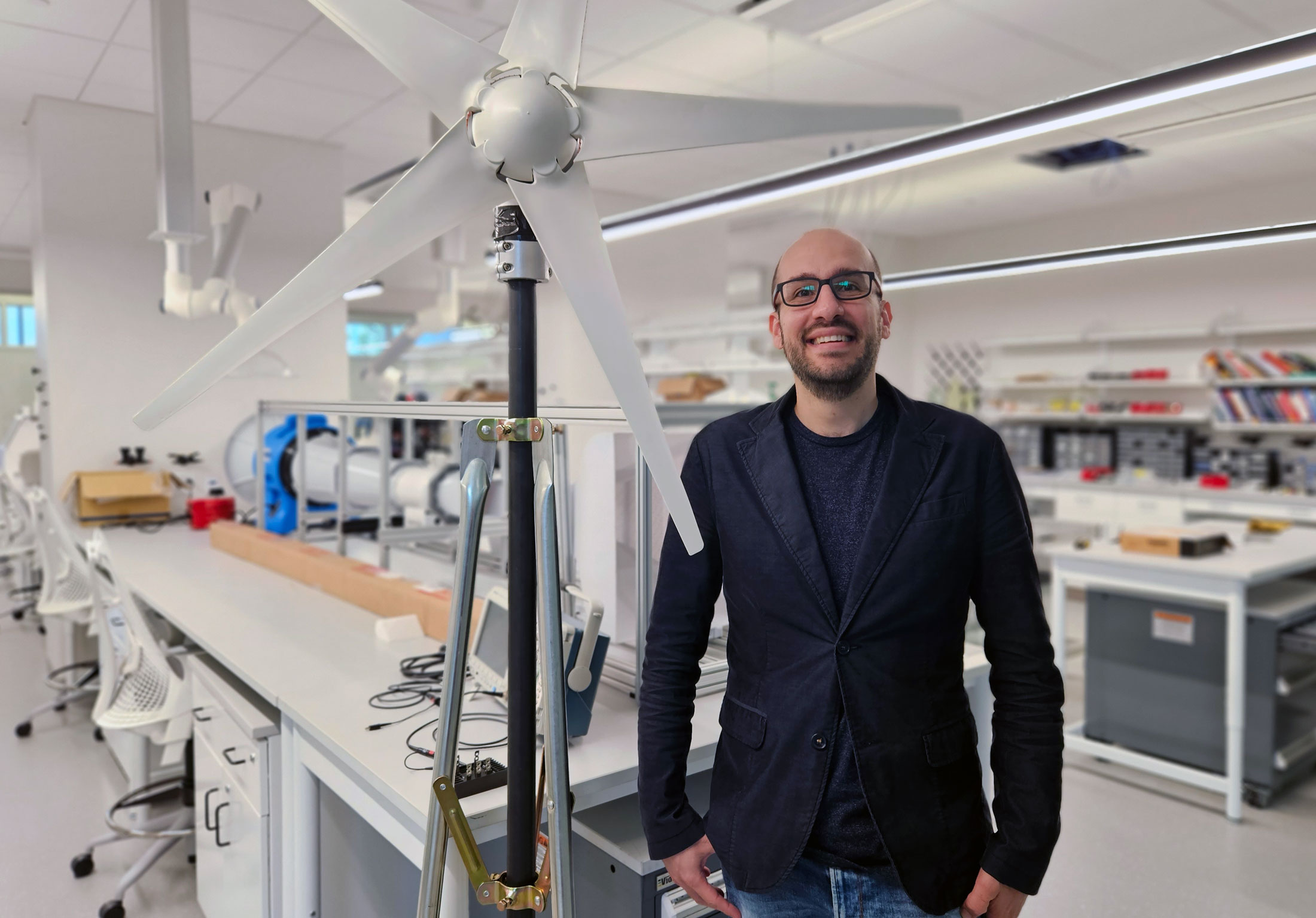
Dr. Alejandro Rolán is a Fulbright Scholar pursuing research on sensorless wind turbine technology at Florida Polytechnic University. Rolán, a professor at the Polytechnic University of Catalonia in Spain, worked on the research with Dr. Edwar Romero-Ramirez, an associate professor of mechanical engineering at Florida Poly.
Dr. Alejandro Rolán, a researcher and professor from the Polytechnic University of Catalonia in Spain, is concluding his Fulbright Scholar term at Florida Polytechnic University this December.
During his four-month stay, Rolán worked in collaboration with Dr. Edwar Romero-Ramirez, associate professor of mechanical engineering at Florida Poly, on innovative research aimed at revolutionizing wind turbine sensor technology.
Rolán, whose academic background is in electrical engineering, specializes in renewable energy, particularly wind turbines' integration and control during power imbalances in the grid.
"I wanted to internationalize my research and establish new research bonds,” he said. “Fulbright grants are very important in Spain and having one is significant for your future career goals.”
The focus of the joint research at Florida Poly was to develop a new way to estimate wind turbine speed.
"What we've done here is to propose a new methodology to estimate the speed of a permanent-magnet synchronous generator-based wind turbine without the need for a mechanical sensor,” Rolán said. “In the technical literature, sensorless speed estimation techniques usually measure AC electrical variables, so a minimum of two voltage sensors are needed. What we have proposed is to measure the DC voltage at the output of a three-phase diode bridge rectifier, so only one voltage sensor is required."
Rather than relying on a traditional sensor with mechanical parts that must be maintained and are more costly, the researchers are working to estimate the speed by relying on measurements of the voltage it produces. In the past few months, the researchers have proposed a new methodology, assembled a small wind turbine without the mechanical sensor, and began validation testing.
The technology looks promising, Rolán said, adding that a study published by the Institute of Electrical and Electronics Engineers (IEEE) identified problems with sensors as the second leading cause of wind turbine failures.
"After assembling the 400W wind turbine, we acquired data to validate the proposed methodology,” he said. “The difference between the estimated speed according to the proposed methodology and the measured speed with an encoder is below 1%, which is acceptable considering that sensors introduce measurement errors. The methodology has also been validated on a smaller permanent magnet synchronous generator with 200W of rated power at Polytechnic University of Catalonia, thanks to the collaboration of my colleagues Santiago Bogarra and Jaume Saura.”
The collaboration between Rolán and Romero-Ramirez opens the door for future work together, Rolán said.
"It has been a wonderful experience working at Florida Poly and with Dr. Romero-Ramirez, and we’ve established a strong collaboration between Florida Poly and my university,” he said. “I think we will keep working together on research projects or sharing students between the two institutions.”
As he prepared to return to Spain on Dec. 15, Rolán reflected on his experience in Florida.
"It's absolutely amazing,” he said. “It's my first time in the USA and in Florida and I leave with really good memories of my stay. I’m very grateful to Florida Poly and Fulbright Spain for having let me live this experience."
Contact:
Lydia Guzmán
Director of Communications
863-874-8557